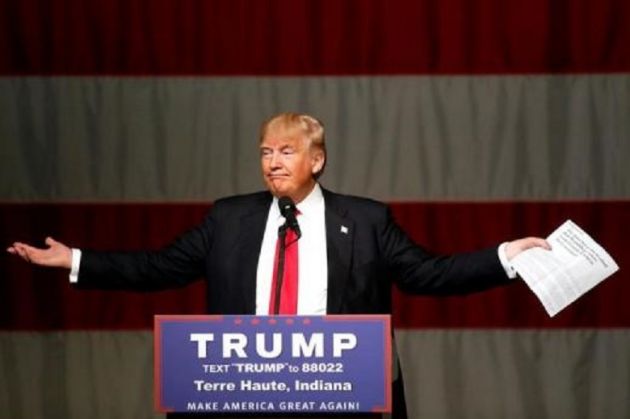Trump can thank evangelicals for his election say Christian and secular analysts

The pundits said they were baffled by them and believed they had turned against Donald Trump. But now his win in the U.S. presidential election is being ascribed to white evangelical Christians who helped clinch victory.
In analysis entitled, "The Evangelical Reckoning Over Donald Trump," The Atlantic said, "White, conservative Christians voted for the Republican candidate by a huge margin, but this election revealed deep fractures among leaders and churches - especially along racial lines."
The Atlantic noted that for months media stories spoke of the death of the religious rights alluding to "a new moral minority" asserting that the Christian cade for voting Trump was followed by that for not voting for him.
Yet now it's clear said the Atlantic, "They overwhelmingly supported Donald Trump."
Exit polls indicated that "Never Trump" was never a likely outcome for white evangelical voters, who showed up to support President-elect Donald Trump in their highest turnout since 2004 when George W. Bush won, reported Christianity Today.
It said despite reservations that many evangelical and Republican leaders had expressed, white born-again/evangelical Christians cast their ballots for Trump at an 81 percent to 16 percent margin over his rival Hillary Clinton.
At the same time, Christianity Today reported that Evangelicals of color, who account for 2 in 5 evangelicals, "but aren't segmented out in most national political polls" largely went for Clinton in the lead up to the election.
HISPANICS AND AFRICAN AMERICANS' TURNOUT
Yet Clinton was not able to compare to a low underperformance in voting by Hispanics and African Americans compared to elections contested by President Barack Obama before her.
Citing the U.S. Elections Project's count so far, only about 56.9 percent of the voting-eligible population cast a ballot on Election Day, Vox reported.
The publication noted that only about one-fourth of Americans eligible to vote actually voted for the real estate mogul turned politician.
In effect 43.1 percent of people eligible to vote did not, said Vox while explain the U.S. voter turnout rate will increase over the next few days as the final votes are counted.
According to the tally Clinton, based on the latest estimates, received a little more than 27 percent of the voting-eligible population's vote, while Trump gleaned just 27 percent.
Although he won the Electoral College, which determines the presidency, Trump appears to have lost the popular vote to Clinton.
So a little more than a quarter of the voting-eligible population chose the next president of the United States.
The Atlantic said that the estimation of the white evangelical vote going to Trump might seem to affirm a long-standing coalition between evangelicals and the Republican party, and did so in many ways.
"But vote counts conceal deep, painful fractures among the huge, diverse group of Americans who identify as evangelical Christians," noted The Atlantic.
In-fighting among Christian leaders before the election showed many people in big, important positions staking their credibility on either supporting or opposing Trump.
Some leaders, such as Liberty University President Jerry Falwell Jr., came out vocally for Trump. Others, like Russell Moore, who leads the Southern Baptist Convention's political arm – vocally opposed him, while other stayed out.
And many pastors didn't affirmatively support Trump.
"The story here continues to be continuity in the strength of evangelical support for GOP candidates, rather than greater intensity," Christianity Today quoted Kevin den Dulk, political science professor at Calvin College as saying.
"I suspect there's some underlying changes in polling responses that would make Trump's evangelical support seem greater than it has in the past," he noted.
Clinton's campaign largely ignored evangelical outreach, unlike that of Obama, said Christianity Today. That might have been a fatal error.
On the other hand Trump spent months leading up to Election Day directly courting evngelical support said Christianity Today.
After the result, The Atlantic said that for some evangelical leaders, and particularly women and people of color, the election "was never about power jockeying or compromise."
"To them, Trump represents a bigoted, misogynistic worldview and an existential threat....White, conservative Christians may have thought they were just casting a vote for president, but some of their brothers and sisters in the church see their choice as a direct and personal assault."